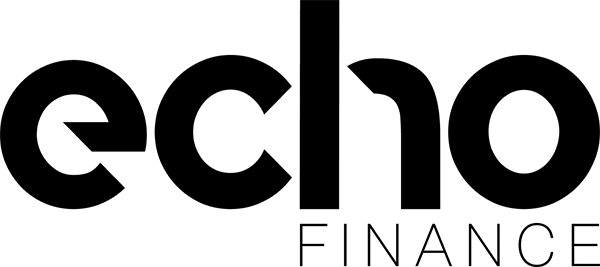Securing the right funding is essential to the success of any business. Whether you’re expanding, diversifying or taking on a new venture, finding the right finance can be challenging.
From asset finance and business loans to invoice discounting and bridging loans, there are plenty of commercial finance options to explore.
At Echo Finance, we understand that every business is different, and as such our team is dedicated to providing tailored advice and solutions for all of our clients. We take the time to understand your business objectives, helping you identify and secure the most suitable funding partner and solution for you.
We work with the entire market, including the major banks and lenders, as well as specialist financing providers. This means we can provide straightforward advice on the best option for your business’s individual circumstances.
No matter what kind of commercial finance you’re looking for, Echo Finance is here to help. Contact us today and our team will be happy to provide more information and explore the options available to you. Give us a call at 0800 093 4914 or complete our online form to request a callback.
What is commercial finance?
The term commercial finance covers a broad range of financial services, including business loans, asset finance, invoice discounting and bridging finance. All of these services can provide businesses with the funds they need to grow and develop.
At Echo Finance, our team is well-versed in all types of commercial finance, so we can help you identify which solution best suits your individual requirements.
Types of commercial finance
Navigating the different types of commercial finance can be tricky. We’ve outlined the most popular services below to give you an idea of what each one involves.
Commercial loans
A commercial loan is a type of funding that can provide businesses with the funds they need for growth, expansion, or diversification. Commercial loans are available from banks and other lenders, and are largely unregulated. This type of funding is useful for:
- Financing a new contract
- Management buy-outs (MBOs)
- International expansion
- Turnarounds and pre-packs
Asset finance
Asset finance allows businesses to spread the cost of purchasing assets such as machinery, vehicles or equipment over a period of time. It’s typically used by larger companies and is an effective way to manage cash flow while still investing in important assets.
Invoice finance and other receivables finance
Invoice finance is most commonly used by businesses that deal with customers on credit terms. This type of finance frees up cash tied up in unpaid customer invoices so you can continue earning money and expanding your business without having to wait for payment from customers.
Bridge loans
Bridge loans are short-term funding solutions that help you bridge the gap between payments and maintain cash flow. They’re typically used to provide fast access cash in a short amount of time, such as when you need to purchase a property or pay off an existing loan before taking out a larger one.
Commercial property finance
Commercial property finance is a type of funding used to purchase commercial properties such as office buildings, warehouses and retail units. This time of finance is typically available from traditional lenders and specialist providers.
Specialist commercial finance
Specialist commercial finance is designed for businesses that don’t fit into traditional borrowing criteria. It provides access to funding for a variety of purposes, such as restructuring existing debt or refinancing assets.
At Echo Finance, we understand that there are numerous variations of business finance products and it can be difficult to find the right solution for your business.
Speak to a commercial finance expert
At Echo Finance, our experienced team of finance professionals can help you find the right option for your business needs. Whether you need a short-term loan to bridge the gap between payments, or a long-term loan to purchase assets, we can help. Get in touch today to speak with one of our experts and find out which type of commercial finance is best for your business.
Find your local adviser

- Residential mortgages: Everything from fixed-rate to tracker mortgages for first-time buyers, homemovers and remortgage borrowers
- Specialist mortgages: For borrowers who fall outside of standard lending criteria, including people with bad credit, self-employed professionals and more
- Later-life lending: Including advice on equity release, mortgages for pensioners and retirement interest only (RIO) mortgages
- Bridging & Commercial: We have specialist advisors on hand for commercial mortgages, bridging loans, development finance and more
- Insurance & Protection: Including life, home and critical illness cover for families and individuals, as well as landlord and business protection insurance
Echo Finance is regulated by the Financial Conduct Authority and is reviewed annually by an independent compliance company. All of our brokers and advisers hold industry-standard qualifications, such as CeMAP, CeRER and DipMap, where required.
We are committed to providing advice through the channels that best suit your needs. Our brokers can provide advice via phone, email, video and web chat from anywhere in the UK, but we also aim to offer face-to-face appointments for those who request them.









